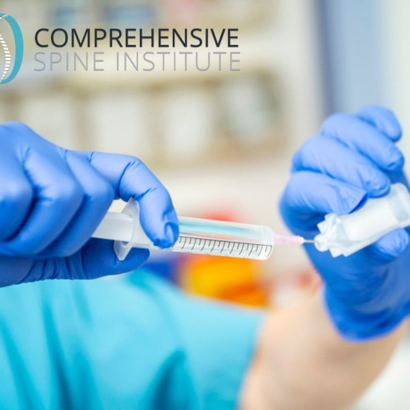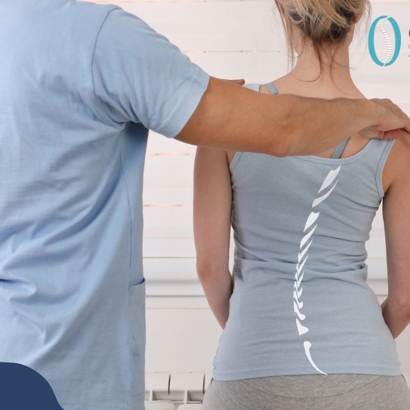
Bulging Discs Treatment in Clearwater, Florida
Explore Your Treatment Options with a Team That Cares
Bulging discs are a common cause of back pain for people of all ages.
The spine is made up of small, round bones (vertebrae) that are cushioned by shock-absorbing discs.
These discs can weaken due to factors such as daily wear and tear, sudden injury, and the body’s natural aging process.
The disc can then stretch and “bulge” outward in one direction. If left untreated, the bulging disc can tear and create a condition known as herniated disc.
Bulging Disc Symptoms
Because a bulging disc does not always trigger obvious symptoms, many people may not realize they have it. However, they can sometimes press against a nerve. This is called a pinched nerve and you may begin to experience symptoms.
Some of the most common bulging disc symptoms include:
- Pain that radiates through the arms or legs
- Localized pain around the area of the bulging disc
- Muscle weakness in the lower body
- Localized or radiating numbness and tingling sensations
- Neck stiffness
Bulging disc symptoms may vary according to the location of the injured disc in the spine. A high percentage of bulging discs occur in the lower back, or the lumbar area, of the spine.
If you are concerned that your symptoms may be due to a bulging disc, you should consult your physician to confirm a diagnosis. Before your appointment, keep a log of your symptoms and how they respond to physical activity (or inactivity). This will help your physician determine the most appropriate diagnostic methods and treatment plan for your neck or back pain.
Causes of Bulging Disc
While there can be several causes for a bulging disc, one of the most common is aging. As we grow older, the spine’s discs and other components begin to lose water content and become increasingly brittle. While the natural aging process can’t be avoided, some activities and behaviors accelerate the spinal degeneration process and increase the risk of disc protrusion at a younger age.
To help maintain good spinal health, consider:
- Losing excess weight
- Eating a balanced and nutrient-rich diet
- Quitting smoking and other forms of tobacco use
- Keeping good posture
- Avoiding high-impact sports and exercises
Additionally, be sure to protect your back when lifting, engage in regular low-impact exercise to strengthen core muscles and adopt a routine of gentle stretching. These behaviors can help keep your spine healthy and help you avoid bulging discs as you age.
Bulging Disc Treatment
Your ideal course of bulging disc treatment will vary according to the details of your diagnosis. Following the diagnosis of a symptomatic bulging disc, your physician will recommend treatments designed to relieve symptoms such as rest, exercises, and medication. Often, symptoms arising from a bulging disc can be effectively managed with these conservative treatments.
Generally speaking, a physician may first recommend a course of conservative approaches such as:
- Physical therapy — to strengthen and stretch the muscles that support the spine
- Nonsteroidal anti-inflammatory drugs (NSAIDs) — to provide temporary relief from pain and inflammation
- Gentle stretching exercises — to elongate the neck and back muscles and promote proper spinal alignment
- Alternating use of ice packs and heating pads — to numb pain, reduce inflammation, soothe tensed muscles and improve circulation around the injured area
- Anti-inflammatory injections — to provide temporary yet powerful relief from pain
- Lifestyle modifications — such as participating in regular low-impact exercise, buying more comfortable footwear and wearing a brace to help maintain good posture.
Additionally, some bulging disc patients choose to explore alternative treatment options such as yoga, chiropractic care, acupuncture, and herbal supplements. The long-term effectiveness of these methods varies for each patient’s condition, although some patients report positive results.
Surgical Treatment for Bulging Discs
Our approach to bulging disc treatment is unique. We use minimally invasive procedures that require a less than 1-inch incision and are performed on an outpatient basis. In fact, many of our patients are up and walking within hours after surgery.
When compared to traditional open spine operations, minimally invasive surgery at Laser Spine Institute involves less risk of complication and shorter recovery periods. Additionally, our procedures have received a patient satisfaction score of 98 percent.
Contact us today to learn more about our surgeons, world-class surgery centers or our minimally invasive approach to bulging disc surgery.
-
Minimal Wait TimeYou shouldn't have to wait a profound amount of time to see a physician we'll get you in, in two weeks or less.
-
Education Is KeyWe believe in educating our patients so they feel empowered when making decisions about their care.
-
4 Convenient LocationsWe are easily accessible with 4 locations that are able to provide the same quality of care.
-
Multi-Specialty PracticeWe pride ourselves on providing our patients with care from physicians who specialize in their needs.
The Latest In Orthopedics
-
 The Case for Epidural Steroid Injections
The Case for Epidural Steroid InjectionsDiscover Relief with Epidural Steroid Injections Living with chronic spinal pain can be exhausting, impacting every ...
Read More -
 Innovative Treatments for Back Pain: Exploring the Latest Advances in Spine Care
Innovative Treatments for Back Pain: Exploring the Latest Advances in Spine CareInnovations in Back Pain Treatment for a Healthier Future Dealing with back pain can take a toll on every aspect of your ...
Read More -
 What Is Spinal Cord Stimulation?
What Is Spinal Cord Stimulation?Spinal cord stimulation (SCS) is a cutting-edge technique that leverages electrical impulses to mitigate chronic pain. ...
Read More -
Understanding Workers' Compensation for Spine Injuries: A Guide for Employees
If you've suffered a spine injury on the job, workers' compensation could be a vital lifeline. This government-mandated ...
Read More


.2408222022228.png)